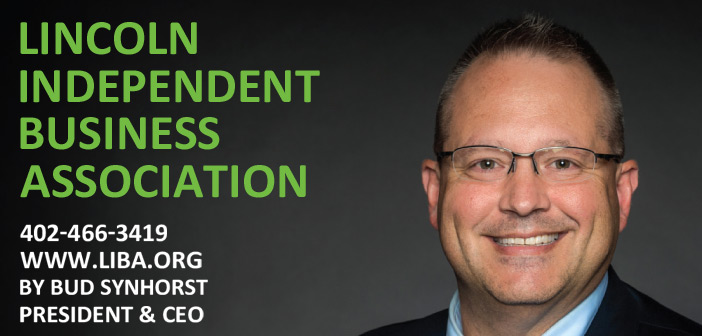There is an issue on the ballot this fall that could have a jarring effect on businesses across the state. That issue is the mandatory raising of the minimum wage. The ballot measure would increase Nebraska’s minimum wage from $9 per hour to $10.50 on January 1, 2023, to $12 per hour on January 1, 2024, to $13.50 on January 1, 2025, and to $15 per hour on January 1, 2026, and will be adjusted annually thereafter to account for increases in the cost of living. LIBA has taken the position of opposing this initiative and is urging Nebraskans to vote against it. The proposed increase in the initiative is a 66.7% increase over four years. That is a radical increase that will be felt across the economy.
Although some companies today are paying more than $10.50 now to attract employees, that is driven by the market and not a forced mandate on Nebraska businesses. This will hit small businesses very hard. There are many reasons why mandating an increase in the minimum wage is a bad idea.
The minimum wage was never meant to be a “living wage” and was meant to be a starting “entry level” wage for young people to enter the work force and have the responsibility of holding a job and learning responsibility. The minimum wage was also meant for low-level unskilled jobs that take no significant training or skill to do.
One argument is that companies are making enough money to pay their employees more. However, most of these jobs are with small businesses or even local franchisees and those owners are not “deep pockets”. When faced with a mandatory higher minimum wage, many companies will reduce their workforce, increase automation, and pay overtime to some employees to make up for fewer employees. Some small businesses will simply have to close because they can’t afford to pay their staff the mandatory minimum wage. Some bigger stores will reduce their locations and consolidate to pay fewer employees.
This increase in the minimum wage is inflationary. These wage increases will cause businesses to raise prices and pass those costs onto consumers. Increasing the wage every year will force businesses to “step-up” other salaries, which is also inflationary and will force businesses to charge more for their products or services or reduce the number of their employees.
Most small businesses do not have the resources to undertake automation efforts as some larger businesses which have implemented automation over the past two years.
If you’re a parent who wants their child to get that first job when they turn 16 to learn the responsibilities that come with holding a job, those opportunities will not be there. If you’re a young person needing that part-time job to help with expenses in high school or secondary education, those jobs will not be there.
Government mandates on businesses are usually a bad idea, but this is an idea that will hurt businesses and crush employment opportunities for our youth and people wanting to enter the work force. These drastic increases are bad for business, bad for potential employees and bad for Nebraska. We urge you to vote against this proposal in November.

